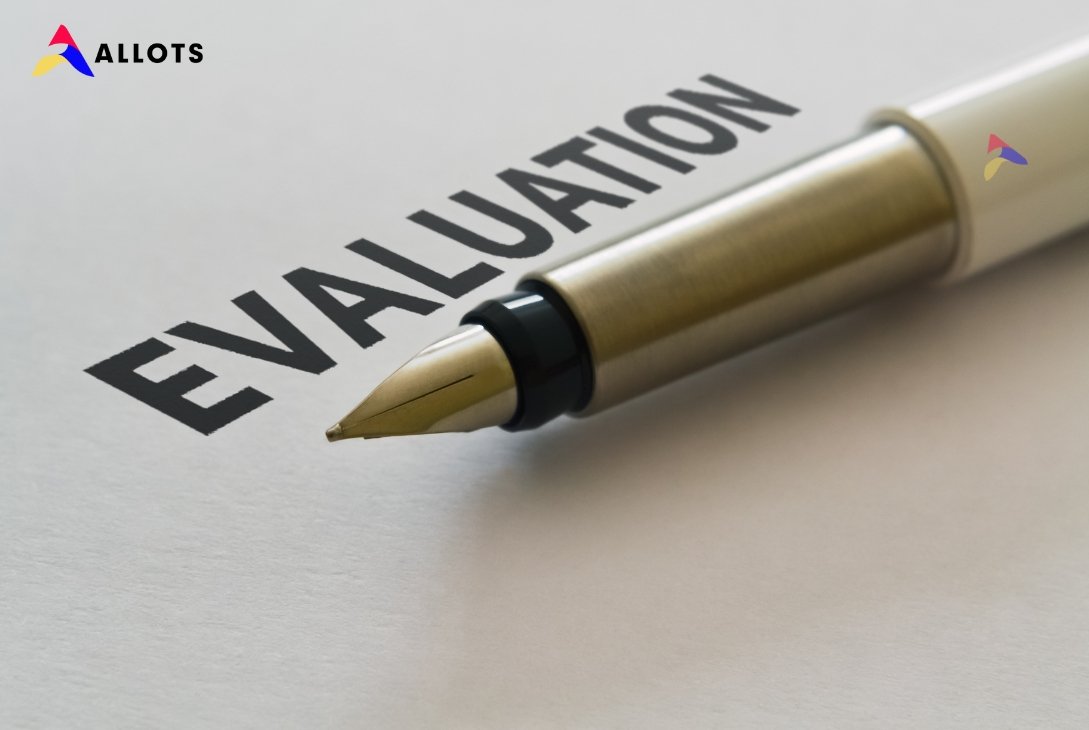Self-evaluation Examples is one of the most effective tools for personal growth and self-improvement. It enables individuals to reflect on their strengths, weaknesses, and areas for growth, thus becoming more mindful of their personal and professional development. Engaging in regular self-evaluation encourages intentionality and helps to create actionable plans for achieving personal goals. Whether it’s in the context of work, relationships, or self-improvement, taking time to evaluate oneself is essential for progress.
In this blog, we will explore the concept of self-evaluation, its significance for personal development, and provide powerful self-evaluation examples. These examples can serve as templates for guiding your own reflections, leading to personal and professional growth.
The Importance of Self-Evaluation Examples
Self-evaluation Examples is a systematic process of reflecting on one’s actions, behaviors, emotions, and decisions to gauge their effectiveness and alignment with goals. It allows individuals to take a step back and critically assess their progress, recognizing achievements and identifying opportunities for growth.
Here are some key reasons why self-evaluation is crucial for personal development:
- Increases Self-Awareness: Regular self-evaluation sharpens awareness of personal strengths and weaknesses. Knowing oneself better leads to more informed decisions and actions.
- Fosters Continuous Improvement: Self-evaluation helps individuals identify areas that need improvement, promoting a mindset of constant learning and growth.
- Promotes Goal Setting: By evaluating past performance, it becomes easier to set realistic, measurable goals for the future. These goals align with personal values and long-term aspirations.
- Boosts Confidence: Recognizing progress and achievements through self-evaluation can boost confidence, making individuals more resilient and prepared to face challenges.
- Enhances Emotional Intelligence: Reflecting on emotional responses during various situations improves emotional intelligence, helping individuals manage relationships more effectively.
How to Conduct a Self-Evaluation Examples
Before diving into self-evaluation examples, it’s important to understand the process itself. Effective self-evaluation involves several steps:
- Reflection: Take time to think about your recent experiences, actions, and decisions. Be honest with yourself about what went well and what could have been done differently.
- Feedback Gathering: While self-reflection is internal, it’s also helpful to seek feedback from others. They may provide insights you hadn’t considered.
- Strengths and Weaknesses: Make a list of your strengths and weaknesses. Focus on how your strengths have contributed to your success and what you can do to address your weaknesses.
- Goal Assessment: Review your past goals and measure how far you’ve come. If you haven’t met them, assess why and what changes need to be made.
- Action Planning: Based on your evaluation, create a plan of action for moving forward. Set new goals and outline specific steps for achieving them.
Powerful Self-Evaluation Examples for Personal Development
Now, let’s look at some practical self-evaluation examples that you can use as templates for different areas of personal development. These examples will cover various aspects of life such as career, emotional well-being, relationships, and personal skills.
1. Career Development Self-Evaluation Example
When it comes to professional growth, self-evaluation plays a vital role in identifying gaps and opportunities for improvement. Here’s an example:
Reflection: Over the past year, I have taken on several new projects at work and successfully led a team of five. I have developed strong project management skills and improved my ability to delegate tasks efficiently. However, I have struggled with time management on a few occasions, leading to missed deadlines.
Strengths: My strengths include effective communication, leadership, and the ability to solve complex problems under pressure. I am proactive in seeking solutions and take the initiative in my projects.
Weaknesses: Time management and organization are areas I need to improve. I often underestimate how long certain tasks will take, which can lead to stress and lower productivity.
Goals: My primary goal is to enhance my time management skills by using tools like task prioritization and time-blocking. I also aim to take a time management course within the next three months.
Action Plan:
- Implement task prioritization techniques such as the Eisenhower matrix.
- Set clear deadlines for each task and stick to them.
- Enroll in an online time management course by the end of the month.
By conducting this career-focused self-evaluation, I am better equipped to take actionable steps toward professional development and growth.
2. Emotional Well-Being Self-Evaluation Example
Emotional well-being is essential for personal development. Self-evaluation in this area can help you better manage stress, emotions, and mental health.
Reflection: In the past six months, I have experienced significant stress due to work and personal challenges. While I have managed to stay focused, there have been moments where my emotional resilience has been tested. I tend to bottle up my emotions, which affects my overall well-being.
Strengths: I am good at maintaining composure in challenging situations and can stay focused on solutions rather than problems. I am empathetic and understanding toward others’ feelings.
Weaknesses: I struggle with expressing my own emotions, which sometimes leads to internalized stress. This affects my mental and physical health. I also need to work on being more proactive in managing my stress levels.
Goals: My goal is to improve my emotional well-being by practicing mindfulness and stress-management techniques. I also want to become more comfortable expressing my emotions and seeking help when needed.
Action Plan:
- Start a daily mindfulness practice, dedicating at least 10 minutes each day to meditation.
- Set aside time each week to reflect on my emotional state and journal my thoughts.
- Engage in open conversations with trusted friends or a therapist about my emotions.
Through this self-evaluation, I can enhance my emotional well-being, ultimately leading to a more balanced and fulfilling life.
3. Relationship Self-Evaluation Example
Relationships, whether personal or professional, can greatly influence personal development. A self-evaluation can provide insight into how you interact with others and how you can improve your relationships.
Reflection: I have a strong support system of friends and family, but there have been moments where I’ve struggled with effective communication. I tend to avoid confrontation, which sometimes leads to misunderstandings.
Strengths: I am a loyal and dependable friend, always there when needed. I’m good at empathizing with others and offering support during tough times.
Weaknesses: I often avoid difficult conversations, which can cause tension in relationships. I need to work on being more assertive and open in my communication.
Goals: My goal is to improve my communication skills, especially in difficult conversations. I also want to focus on setting healthy boundaries to maintain a balance between my needs and those of others.
Action Plan:
- Practice active listening during conversations to ensure better understanding.
- Learn and apply assertiveness techniques in situations where confrontation is needed.
- Set clear boundaries in relationships and communicate them respectfully.
By evaluating my relationships, I can work toward building healthier and more fulfilling connections with those around me.
4. Personal Skills Self-Evaluation Example
Improving personal skills such as problem-solving, creativity, or adaptability can significantly contribute to personal development. A self-evaluation focused on these areas allows for targeted improvement.
Reflection: Over the past year, I have taken on challenges that required me to be more creative and adaptive. I’ve noticed an improvement in my problem-solving abilities, but I still struggle with finding creative solutions in time-sensitive situations.
Strengths: I am analytical and can break down complex problems into manageable parts. I am also adaptable and open to change, which has helped me navigate new challenges.
Weaknesses: My creativity tends to falter under pressure, and I sometimes hesitate to take risks when brainstorming new ideas.
Goals: My goal is to enhance my creativity by experimenting with different brainstorming techniques and seeking inspiration from various sources. I also want to improve my ability to think on my feet in high-pressure situations.
Action Plan:
- Incorporate daily creative exercises such as free writing or mind mapping.
- Set aside time each week to explore new experiences or ideas that inspire creativity.
- Practice problem-solving under time constraints to build resilience in high-pressure situations.
By assessing and developing my personal skills, I can enhance my capacity to handle challenges more effectively and creatively.
The Role of Self-Evaluation in Achieving Personal Development Goals
As shown in the self-evaluation examples above, regular self-assessment is a powerful tool for fostering personal development. By recognizing areas of strength and areas that require growth, individuals can create actionable plans that lead to meaningful change. Additionally, self-evaluation encourages accountability and helps individuals stay committed to their goals.
When done consistently, self-evaluation becomes a habit that facilitates continuous improvement. It empowers individuals to take ownership of their personal development journey, ensuring that they are constantly evolving and reaching their full potential.
Final Thoughts
Self-evaluation is a valuable practice for anyone serious about personal development. By taking time to reflect, assess, and create action plans, individuals can improve in various areas of their lives, from career to emotional well-being to relationships. The self-evaluation examples provided in this blog serve as a starting point for anyone looking to develop a habit of self-reflection.
Remember, the key to successful self-evaluation is honesty and consistency. By being truthful with yourself and conducting regular self-assessments, you can unlock new levels of personal growth and achievement.



